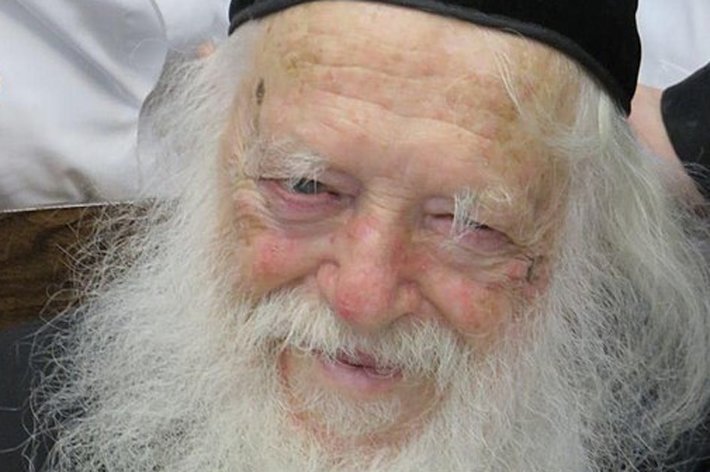Beatie Deutsch was a mother of four when she ran her first marathon in 2016. She ran her second marathon a year later—while seven months pregnant—and went on to win Israel’s national marathon championship in 2019, clocking an impressive finishing time of 2 hours, 42 minutes, 18 seconds.

Now 31 years old and mother of five, Deutsch, who was born in New Jersey and became an Israeli citizen in 2008, is preparing to compete in the Tokyo Olympics women’s marathon in August 2021. But she will probably not be participating in the historic event if the race is held as scheduled—on Shabbat, the Jewish Sabbath.
Shabbat, which begins at sunset on Friday and ends at sundown on Saturday, marks the weekly day of rest for Jewish people. For Orthodox Jews such as Deutsch, that means refraining from a range of basic everyday activities, such as business transactions, driving or riding in vehicles, using the telephone, shopping, cooking, baking or lighting a fire, doing the laundry, gardening and engaging with technology.
For Deutsch, who describes herself as “Marathon Mother,” Shabbat also entails no running. Because the government of Israel pays her to train, running amounts to work, which is forbidden on Shabbat,” according to a September 4 article in the Pittsburgh Jewish Chronicle.
Deutsch runs according to ultra-Orthodox Jewish law—in a skirt that falls below her knees, sleeves that cover her elbows, and a headscarf, according to a January 2019 article in Runner’s World magazine. She utters blessings during her morning warmups and listens to Torah classes on her runs, the Pittsburgh Jewish Chronicle reports.
Initially scheduled for the summer of 2020, the Tokyo Olympics was postponed to the following year because of the COVID-19 pandemic. Marathons are usually held on Sundays, but Deutsch’s race was rescheduled for a Saturday because outdoor distance events were condensed into four days and moved from Tokyo to the Japanese city of Sapporo.
Deutsch is an unusually eye-catching figure on the track. When she ran seven months pregnant in the 2017 Tel Aviv Marathon, her bulging belly and relatively bulky attire caught the attention of many of her competitors. “I think people were surprised to be passed not only by a pregnant woman, but by a woman wearing so much clothing,” Runner’s World quoted her as saying. “People have this misconception that skirts hold you back. But it’s just something I’m used to.”
She added: “I feel really proud of the way I dress. I’m proud that I can still pursue my dreams without sacrificing my values. There are a lot of messages out there telling runners to look and dress a certain way, but it doesn’t have to all be about how your body looks when you run.”
Deutsch is not the first religious athlete to encounter obstacles to her sporting dreams. During the 1924 Paris Olympics, a British sprinter and devout Christian missionary, Eric Liddell, refused to run the 100-meter dash because a qualifying heat was scheduled for a Sunday. His idealistic decision to choose faith over sport, for which he was both pilloried and praised, was fictionalized in the 1981 Oscar-winning film Chariots of Fire.
More recently, Estee Ackerman, an 18-year-old Jewish Orthodox ping pong player from Long Island, missed the 2016 U.S. Olympic team ping pong trials because they were scheduled for a Saturday. And Tamir Goodman, an Orthodox Jew who was nicknamed the “Jewish Jordan” by Sports Illustrated, turned down a basketball scholarship to top-ranked University of Maryland to attend Towson, a less prestigious university, over differences with Maryland’s coaching staff regarding his religious practices.
Deutsch has appealed to World Athletics, which governs Olympic running events, for an accommodation based on her religious obligations. “She saw her struggle as bigger than herself, one that religious athletes across the globe might face,” wrote the Pittsburgh Jewish Chronicle.
“I think sometimes religious teenagers [and] youngsters feel like, ‘I can’t go into sport,’” Deutsch told the newspaper. “I just want to give hope and inspiration to people like that.”
Deutsch was disappointed when World Athletics informed her that the women’s marathon date would not be changed. The International Olympics Committee (IOC) inflicted yet another blow when a spokesperson told the UK Telegraph, “While we put athlete considerations first in all decisions, particularly health and welfare, we are unfortunately not able to adjust the schedule to the particular situation of each individual athlete.”
But Deutsch hasn’t lost hope. Akiva Shapiro, a New York attorney who is also an observant Jew, has made a reasonable accommodation request to the IOC on Deutsch’s behalf. In a letter to the IOC president and executive board members in August, Shapiro mentioned that the IOC had made special meal arrangements for Muslim athletes during the 2012 Summer Olympics in London, which coincided with Ramadan, the Islamic holy month of fasting and prayers.
“Athletes of faith kind of hit a glass ceiling—whether they’re Jewish or Muslim or Christian or anything else—where they’re forced to choose between their faith and their sport,” said Shapiro. “That’s not consistent with the Olympic ideals.”
If the IOC doesn’t alter its decision, an appeal could be made to the Switzerland-based Court of Arbitration for Sport, which resolves sports-related disputes between athletes and the IOC.
The stakes aren’t just limited to the elite Israeli marathoner. “There are probably a lot of up-and-coming athletes that are going to look to her struggle, and if they see that it’s possible to have it all—to compete at the highest level and be observant—that will be inspiration and motivation for them,” Shapiro said.
_________________
From its beginnings, the Church of Scientology has recognized that freedom of religion is a fundamental human right. In a world where conflicts are often traceable to intolerance of others’ religious beliefs and practices, the Church has, for more than 50 years, made the preservation of religious liberty an overriding concern.
The Church publishes this blog to help create a better understanding of the freedom of religion and belief and provide news on religious freedom and issues affecting this freedom around the world.
The Founder of the Scientology religion is L. Ron Hubbard and Mr. David Miscavige is the religion’s ecclesiastical leader. For more information, visit the Scientology website or Scientology Network.


